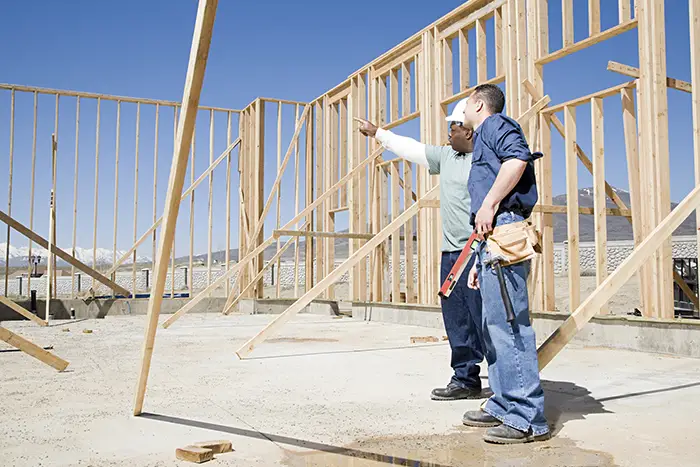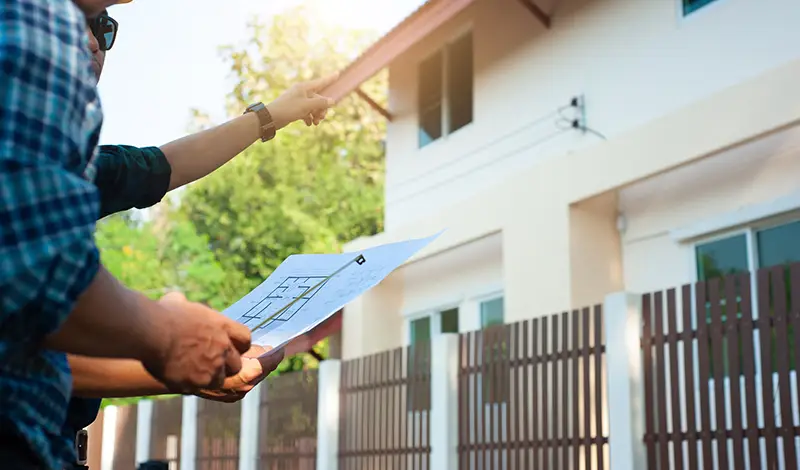Building Your Dream Home
Published on April 26, 2024 | 5 Minute read

Melanie
Ortiz Reyes
Content Specialist
Building a custom home is a dream come true for many aspiring homeowners. It offers the opportunity to design a living space that reflects your unique style, preferences, and lifestyle needs from the ground up. However, building a custom home requires careful planning, decision-making, and collaboration with professionals in the construction and design industry.
Defining Your Dream Home
The first step in building your custom home is to define your vision. Take the time to envision your ideal living space, considering factors such as architectural styles, layout preferences, size requirements, and desired amenities. Gather inspiration from home design magazines, online platforms, TV shows, and visits to model homes or showcase properties. Create a vision board or digital mood board to capture elements that resonate with your aesthetic and functional goals for your custom home. Pinterest is a great site for this.

Budgeting and Financing
Before diving into the design and construction process, you must establish a realistic budget for your custom home project. Consider factors such as land acquisition costs, construction expenses, design fees, permits, landscaping, and contingency funds for unexpected costs or upgrades. Work closely with financial advisors, mortgage lenders, or construction loan specialists to understand your financing options, loan terms, and affordability based on your budget and financial profile.
Land Acquisition and Site Selection
The location of your custom home plays a significant role in its overall appeal, value, and lifestyle convenience. Research potential neighborhoods or areas that align with your preferences in terms of schools, amenities, commute times, and community ambiance. Work with real estate agents or property developers specializing in land sales to explore available lots or properties suitable for your custom home design. Consider factors such as zoning regulations, soil conditions, topography, and environmental considerations when selecting a site for your dream home.
Collaborating with Architects and Designers
Once you have secured a suitable lot or property, collaborate with architects, designers, and builders to bring your vision to life. Start with conceptual sketches or 3D renderings to visualize the layout, exterior design, and interior spaces of your custom home. Discuss your lifestyle needs, aesthetic preferences, sustainability goals, and/or technology integration desires with the design team to create a tailored and functional design blueprint.

Compliance and Approvals
Navigating the regulatory landscape is an important aspect of building a custom home. Work with architects and builders familiar with local building codes, zoning ordinances, environmental regulations, and permit requirements in your chosen location. Obtain necessary approvals, permits, and inspections from relevant authorities at each stage of the construction process to ensure compliance with legal and safety standards. Remember to factor in the timeline and potential delays associated with permit processing and approvals in your project schedule.
Building Your Dream Home
With plans finalized, permits obtained, and financing secured, the construction phase of your custom home project can begin. Collaborate closely with your builder, project manager, and subcontractors to oversee the construction progress, quality control, and adherence to design specifications. Regular site visits, progress meetings, and clear communication channels with the construction team are needed to ensure the project stays on track, within budget, and meets your expectations.
Selecting Materials and Interior Features
As construction progresses, focus on selecting materials, finishes, and interior features that align with your design vision and lifestyle preferences. Work with interior designers, decorators, and suppliers to choose flooring, cabinetry, countertops, lighting fixtures, appliances, paint colors, hardware, and decorative elements that enhance the aesthetics and functionality of each space in your home.

Ensuring Quality
Prior to occupancy, conduct thorough quality assurance inspections and walkthroughs with the construction team to identify any defects, deficiencies, or areas needing adjustments or corrections. Addressing issues promptly during this phase ensures that your custom home meets quality standards, building codes, and design expectations before move-in. Schedule final inspections, obtain occupancy permits, and document warranties, manuals, and maintenance guidelines for all installed systems and components in your new home.
Moving In
Once construction is complete and all necessary approvals and inspections are obtained, it's time to move into your dream home. Create memorable moments and cherish the unique living experience that your custom home provides, tailored to your vision and lifestyle.
Building Equity and Comfort
Beyond the immediate joy of moving into your custom home, recognize the long-term benefits it offers as a valuable investment and comfortable living space. Building equity in your property through mortgage payments and appreciation can contribute to financial stability and future opportunities. Maintain regular maintenance, upgrades as needed, and periodic evaluations of energy efficiency and home systems to preserve property value and enhance living comfort over time.
Building your custom home is rewarding but requires careful planning and attention to detail at every stage. Embrace the unique living experience, personalization, and long-term investment value that your custom home provides, creating a haven that reflects your style, functionality needs, and aspirations for the future.